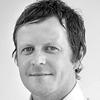
When you’re trying to establish yourself in the professional game, you have to be prepared to fling some clobber in a bag at the last minute and make a spontaneous trek to a far flung land.
Getting out to Australia at short notice is hardly a quick hop on a service bus but Grant Forrest’s late dash down under paid off last month when he posted a top 20 finish in the European Tour’s World Super 6 Championship.
A couple of weeks ago, Forrest took another gamble and ventured forth to South Africa as a reserve for the Tshwane Open, got in the field and played in all four rounds.
With the kind of breathless globetrotting that would have had Phileas Fogg sitting out a couple of legs, it’s a good job Forrest has the valuable financial aid to fund his travels and development.
Yesterday, Forrest, along with Ewen Ferguson, Kelsey MacDonald and the absent-through-illness Robert MacIntyre, were unveiled as the quartet included in Team Scottish Hydro, the support programme which is now in its eighth year.
Having made three cuts on the main European Tour in 2018, Forrest’s focus will still be on earning promotion from the Challenge Tour this season and he will head to the first event on the second-tier circuit’s schedule in Kenya this month with a sprightly sense of purpose and competitive sharpness.
With three top-five finishes during his rookie campaign on the Challenge Tour last season, Forrest continues to adapt to the rigours of the pro scene. The golfing environments may have changed from his days in the amateur ranks but the 24-year-old has stuck by the disciplines that got him to the top of the unpaid game.
“When Paul McGinley talked to us before the Walker Cup in 2015 he told us that we had done a lot of good things to get to where we were and not to make major overhauls when we turned pro,” he said. “A lot of guys who are good amateurs try to change everything when they turn pro. There’s a conflict because you want to keep getting better but it can go downhill.”
In this fickle game of fluctuating fortunes, there are no guarantees of success but Forrest’s former amateur sparring partners like Jon Rahm, the world No 3, and Matt Fitzpatrick, the 24-year-old Ryder Cup player, have made the transition and flourished with dazzling effect.
“Matt is the one stand out for me as I have known him since I was 14,” reflected Forrest. “It’s good to see how the confidence of someone can just snowball. Jon was at Arizona State when I was at San Diego and we played a lot of the same college events. I also beat him in the European Team Championships.
“His rise has been rapid but it doesn’t surprise me. He had the game and the confidence and he probably could have turned pro before he did. But when he did he was more than ready.
“Seeing young guys you’ve grown up playing against and, at times got the better of, having this success encourages you to go on and do the same.”



Why are you making commenting on The Herald only available to subscribers?
It should have been a safe space for informed debate, somewhere for readers to discuss issues around the biggest stories of the day, but all too often the below the line comments on most websites have become bogged down by off-topic discussions and abuse.
heraldscotland.com is tackling this problem by allowing only subscribers to comment.
We are doing this to improve the experience for our loyal readers and we believe it will reduce the ability of trolls and troublemakers, who occasionally find their way onto our site, to abuse our journalists and readers. We also hope it will help the comments section fulfil its promise as a part of Scotland's conversation with itself.
We are lucky at The Herald. We are read by an informed, educated readership who can add their knowledge and insights to our stories.
That is invaluable.
We are making the subscriber-only change to support our valued readers, who tell us they don't want the site cluttered up with irrelevant comments, untruths and abuse.
In the past, the journalist’s job was to collect and distribute information to the audience. Technology means that readers can shape a discussion. We look forward to hearing from you on heraldscotland.com
Comments & Moderation
Readers’ comments: You are personally liable for the content of any comments you upload to this website, so please act responsibly. We do not pre-moderate or monitor readers’ comments appearing on our websites, but we do post-moderate in response to complaints we receive or otherwise when a potential problem comes to our attention. You can make a complaint by using the ‘report this post’ link . We may then apply our discretion under the user terms to amend or delete comments.
Post moderation is undertaken full-time 9am-6pm on weekdays, and on a part-time basis outwith those hours.
Read the rules here